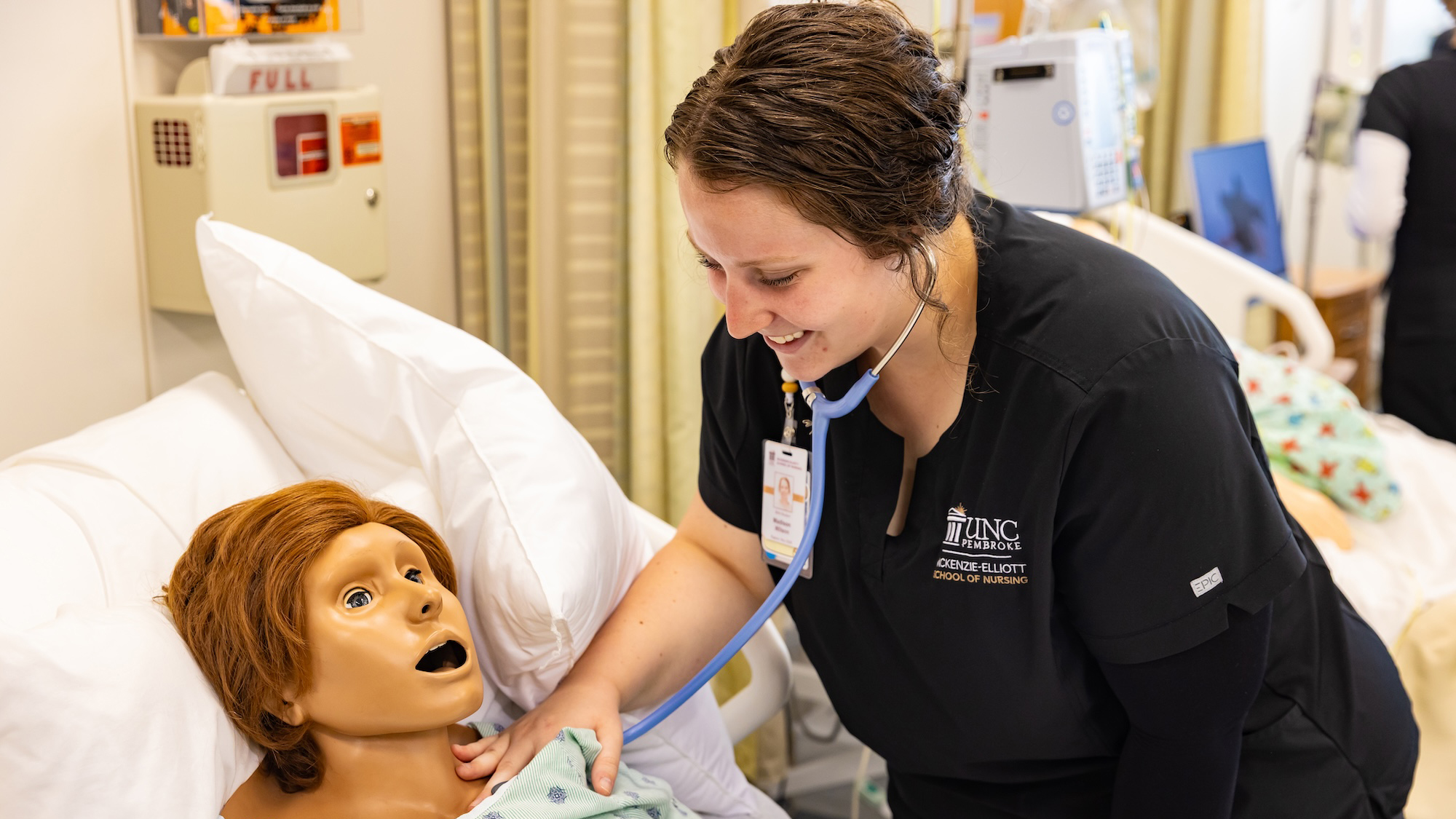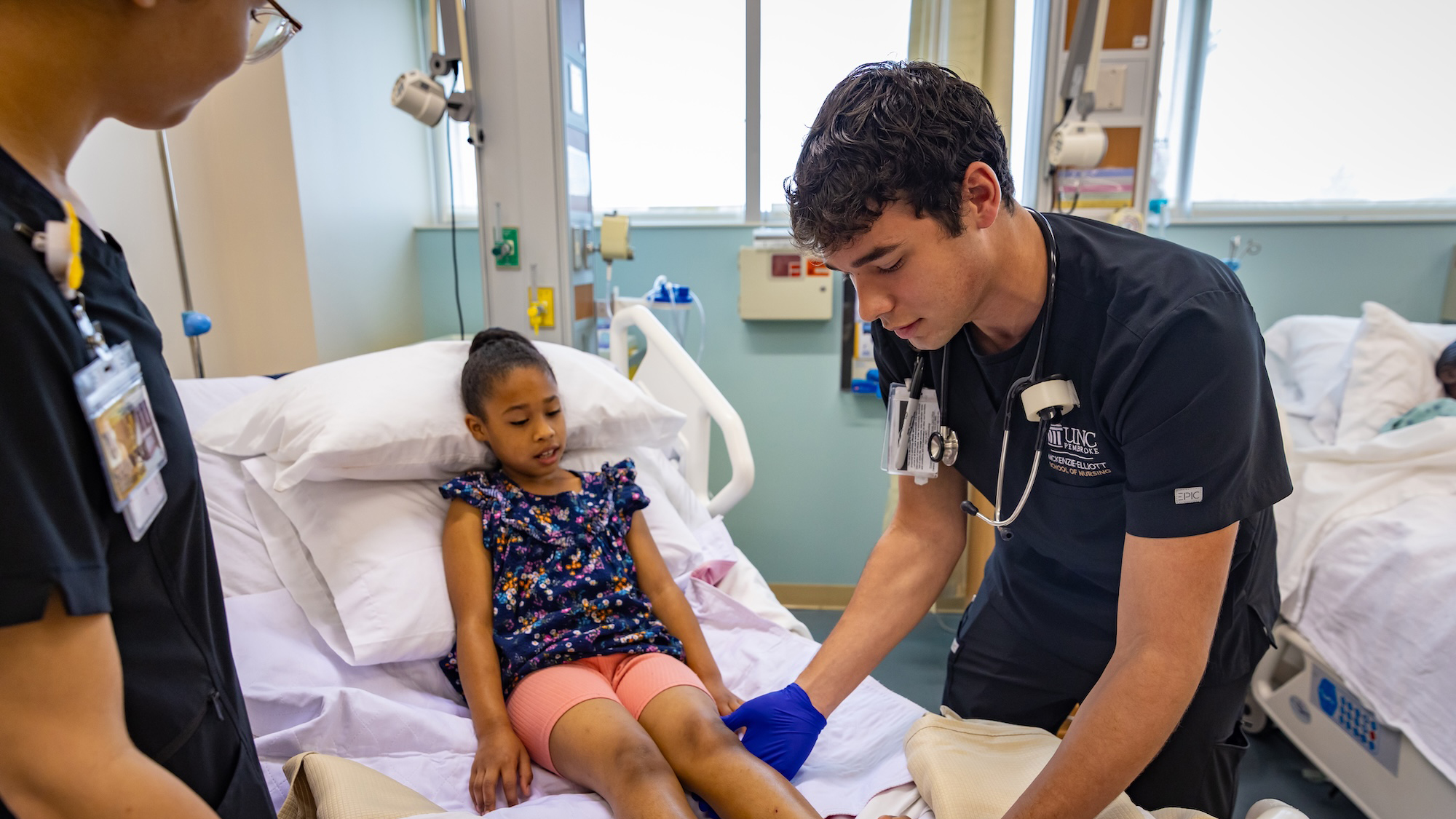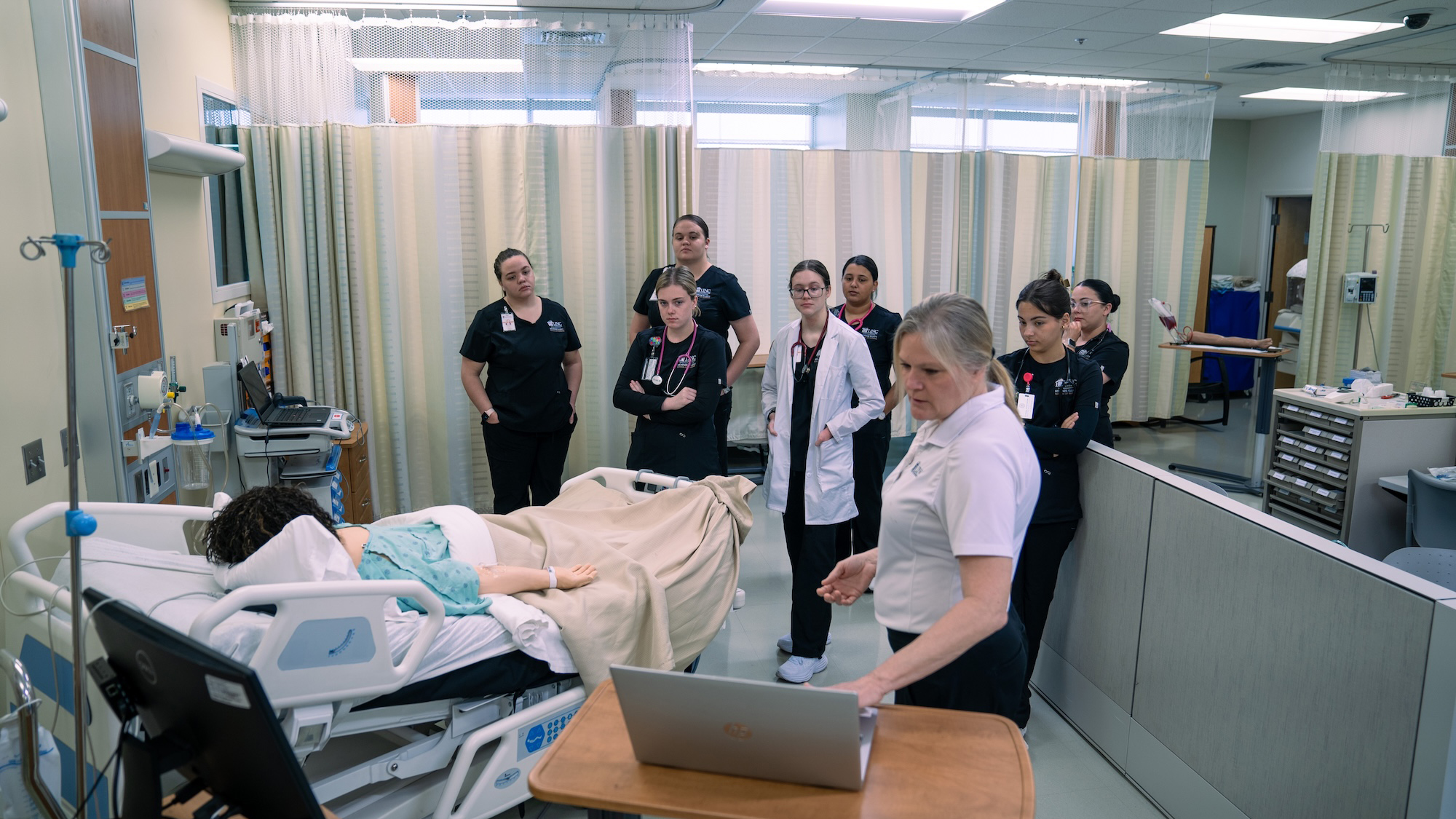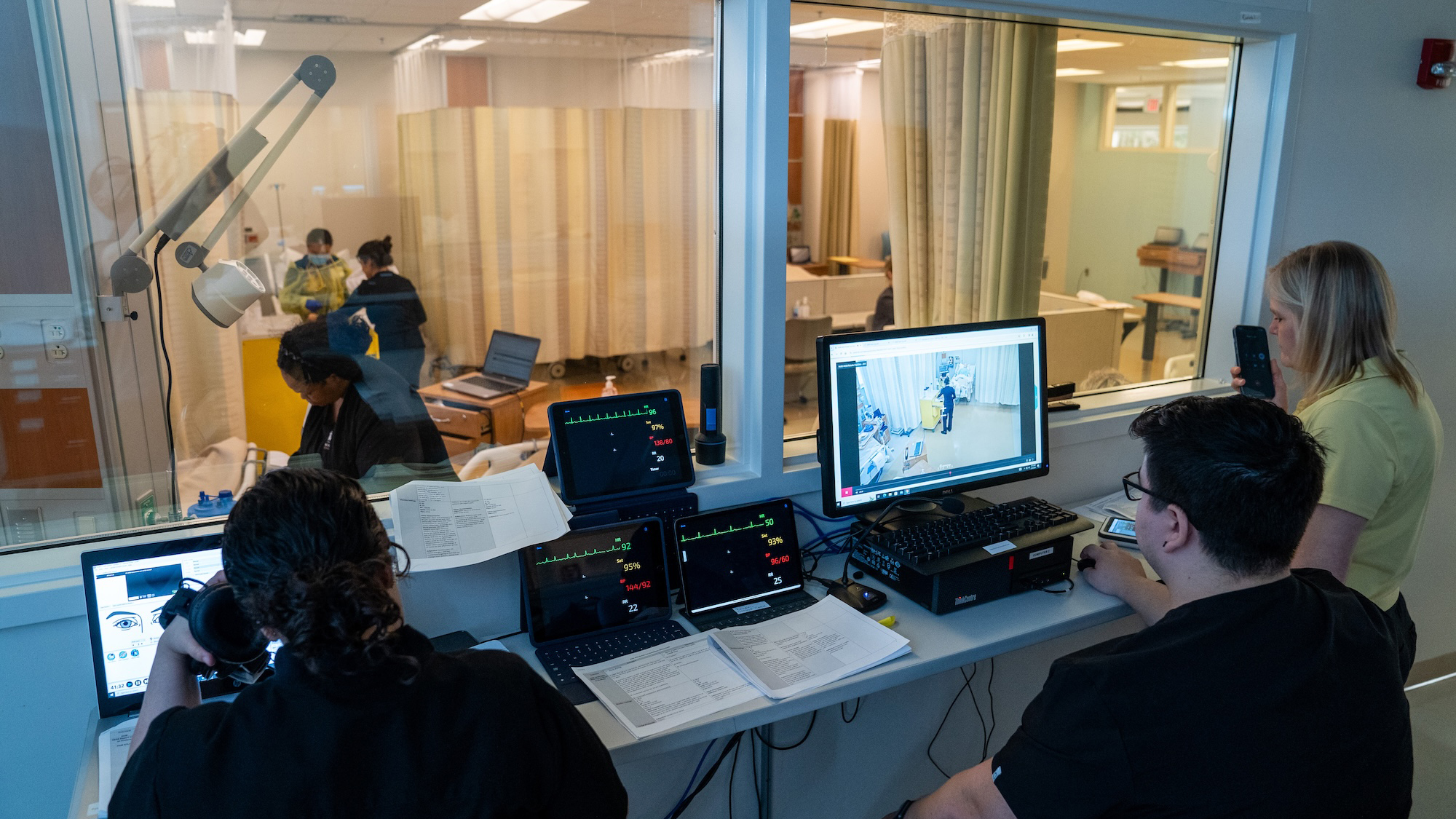UNCP's Clinical Learning Center is where nursing students turn knowledge into action. This cutting-edge facility offers hands-on training in realistic clinical settings — equipping you with the skills, confidence and critical thinking needed to thrive in today's fast-paced health care environments. From high-fidelity simulations to fully equipped labs, the CLC prepares you to step into clinical practice with experience that feels real.
Clinical Learning Center
Located on the 2nd floor of the Weinstein Health Sciences Building, UNCP's 14,500-square-foot Clinical Learning Center (CLC) offers students an immersive, hands-on environment to bridge classroom theory and real-world practice. At the CLC, you'll build confidence and competence by actively engaging with real-life scenarios — from acute care to mental health to home-based nursing — ensuring you're ready for the demands of clinical placements and professional practice.

Elevate Your Clinical Skills
Why UNCP Stands Apart
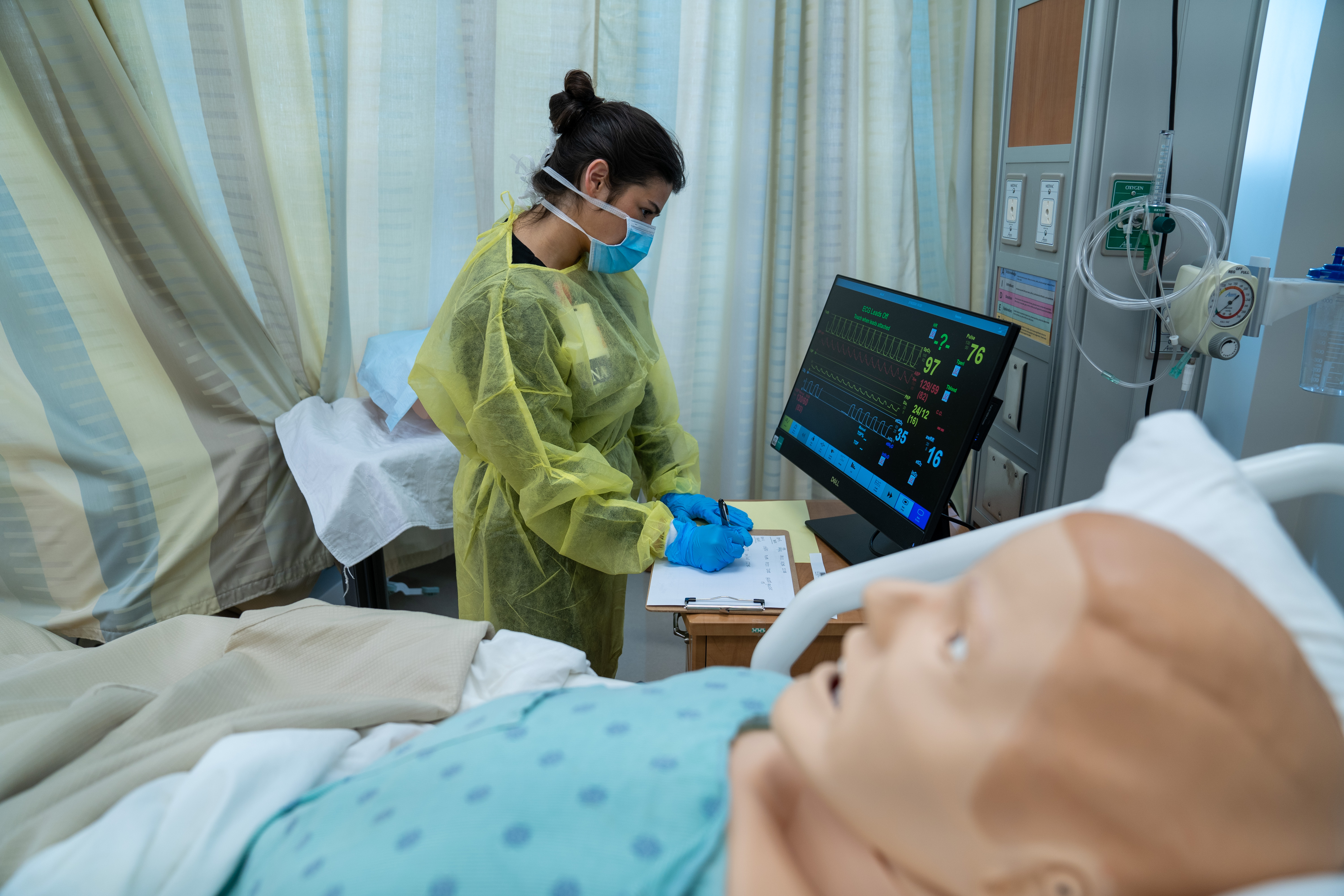
At UNCP, our manikin-based simulators give nursing students the opportunity to build confidence and clinical skills in a safe, hands-on environment that mirrors real-life scenarios. From labor and delivery to pediatric and adult care, our diverse range of high-fidelity manikins helps students practice assessments, interventions, and communication across the lifespan.
Plus, our facility boasts:
- Seven specialized simulation labs — Basic Care, Advanced Care, Maternal/Child, Pediatric, Psychiatric/Mental Health, Health Assessment and the Brenda Brooks Home Care apartment — are equipped to replicate diverse patient scenarios across the lifespan.
- High-tech integration & observation capabilities, featuring live video streaming, recording, and debriefing spaces that support faculty-supervised, reflective learning.
- Realistic simulation tools, from manikins that breathe, speak, and exhibit physiological responses to fully furnished home-care settings, empowering you to practice critical thinking, clinical judgment, and interprofessional collaboration safely.
- Structured debriefing & faculty mentorship, using best practices like the Debriefing for Meaningful Learning model to guide self-reflection, teamwork and continuous improvement.
